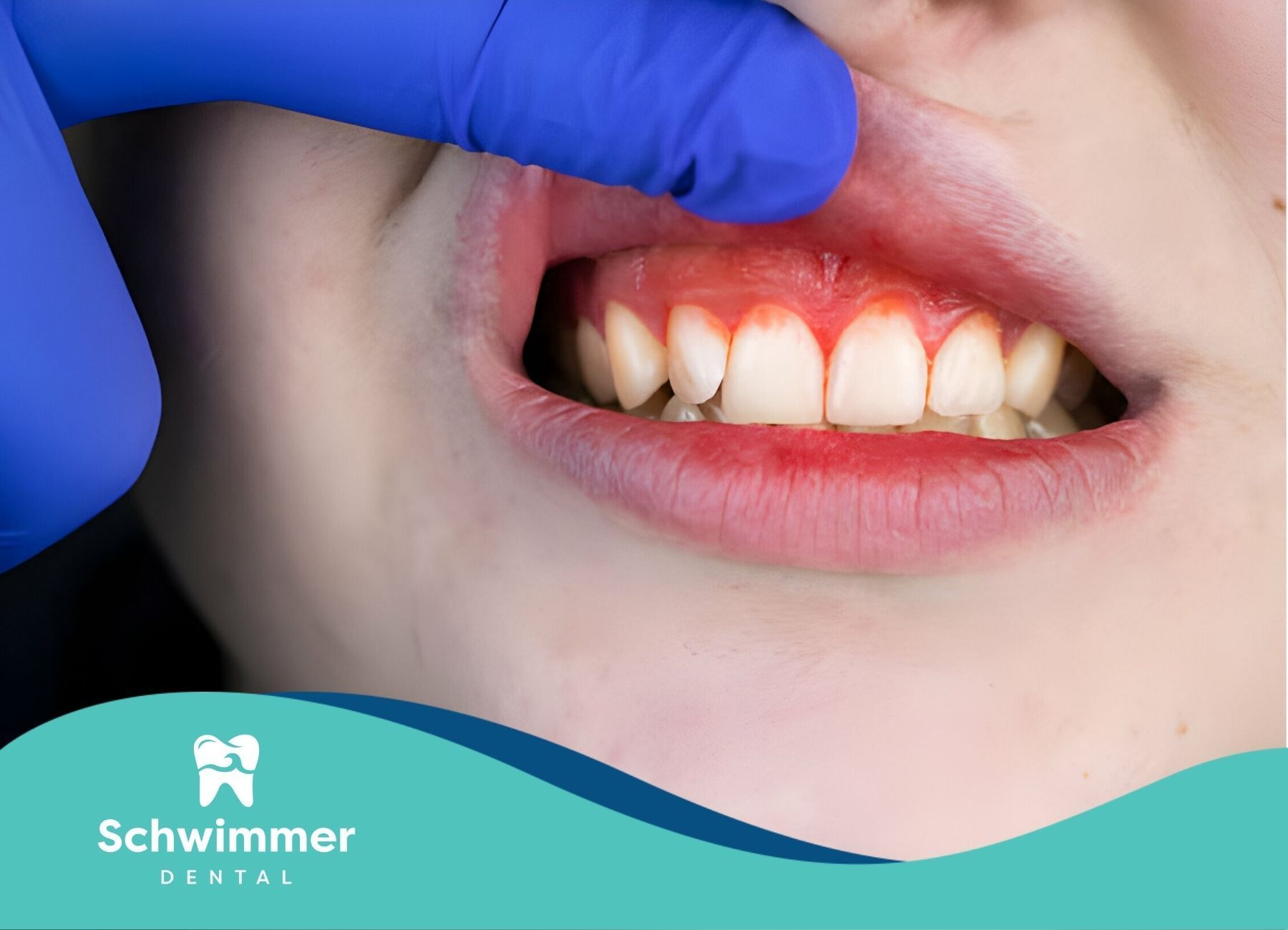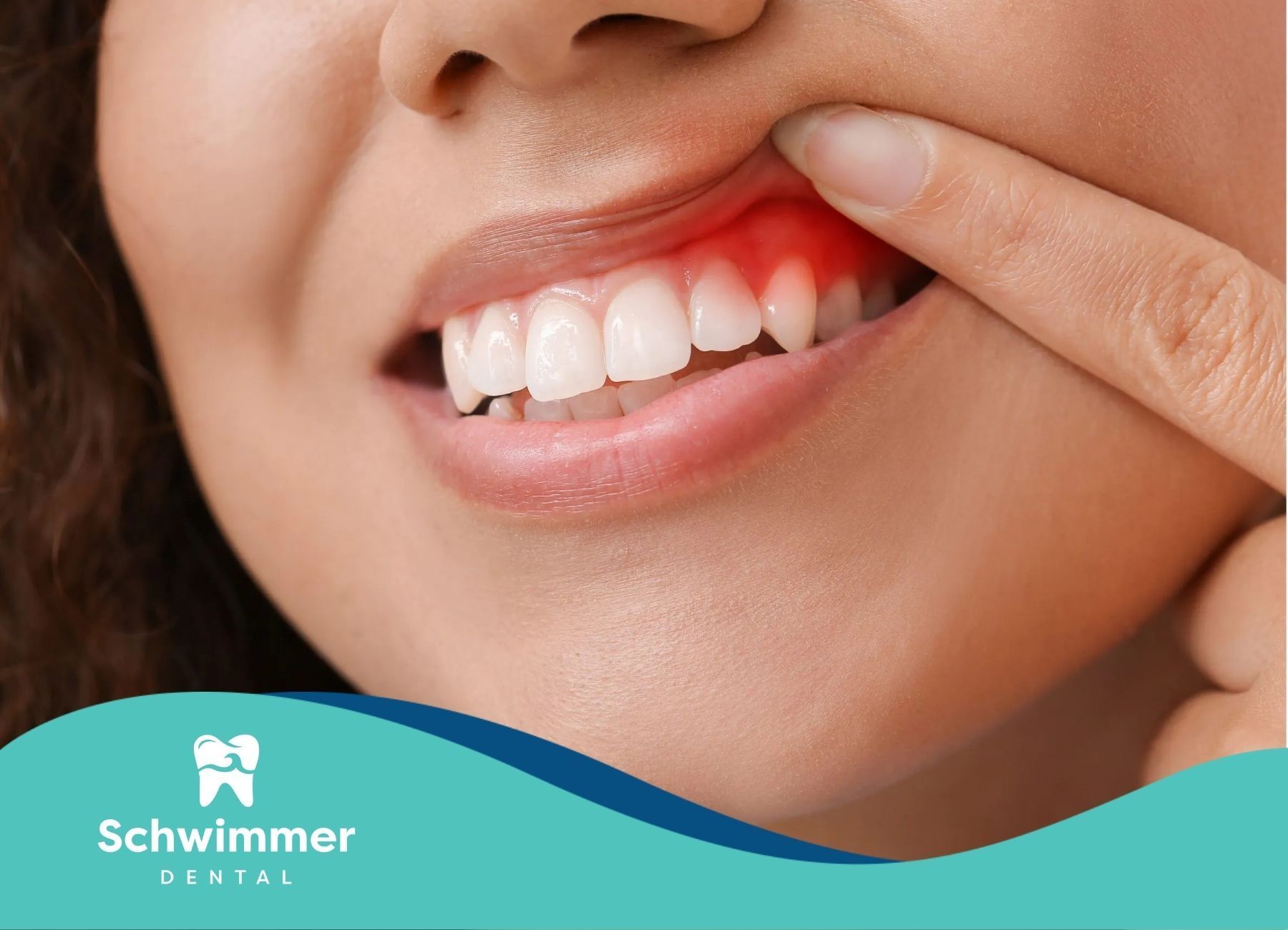Have an appointment? Complete the Intake Form
Vaping Effects on Oral Health: Important Information
Vaping effects on dental health are often underestimated, overshadowed by concerns about lung disease. However, the impact on oral health is significant. In this section, we delve into the lesser-known consequences of vaping on teeth and gums. Understanding these effects is crucial in making informed decisions about this popular practice. Let's explore how vaping, despite its perceived safety compared to traditional smoking, poses unique risks to dental health. Stay tuned to discover the crucial link between vaping and oral hygiene.
Understanding Vaping and Its Popularity
Vaping has seen a rapid surge in popularity within the United States. This growth can be attributed to its appeal as a modern and seemingly 'safer' alternative to traditional tobacco smoking. Various vaping devices, such as electronic cigarettes, deliver vaporized liquids containing potentially harmful chemicals. The allure of vaping lies in the perception of reduced health outcomes and health risks compared to smoking. However, the long-term effects of vaping, especially on oral health and overall health, as well as disease control, are still under extensive research and scrutiny.
The rise of vaping in the United States
Vaping has seen a meteoric rise in the United States, especially among young adults and young people. The widespread availability of electronic cigarettes and vape products has contributed to this surge in popularity. With vaping being perceived as a potential alternative to traditional cigarettes, lots of people, particularly the youth and young people, have embraced vaping as a public health concern. The accessibility and variety of flavors in vape juice have also played a significant role in the increase of vaping among different age groups.
Different types of vaping devices and liquids
Vaping devices come in various forms such as e-cigarettes, vape pens, and mods, which allow users to inhale aerosols containing flavorings, nicotine, cannabinoids, or other substances. E-liquids utilized in these devices consist of a combination of propylene glycol, vegetable glycerin, flavorings, and sometimes nicotine or other drugs. Users have the flexibility to customize their vaping experience by selecting different device types and e-liquid flavors, catering to individual preferences for taste and nicotine levels.
The Impact of Vaping on Oral Health
Chemicals present in vape juice can harm teeth by causing decay, while the act of vaping itself can lead to gum disease. These oral health risks are attributed to the toxic substances found in electronic cigarettes. Maintaining oral hygiene is crucial due to the increased risk of dental issues associated with vaping. Understanding these effects is essential in promoting overall health and well-being.
Chemicals in vape juice and their effects on teeth
Recent studies have highlighted the concerning impact of chemicals found in vape juice on oral health, particularly teeth. The presence of harmful substances such as toxic chemicals and heavy metals in electronic cigarette liquids can lead to dental issues. These chemicals can contribute to gum disease, tooth decay, and other oral health problems, which may also affect mental health and are associated with mental illness. Understanding the composition of vape products is crucial in assessing the potential risks they pose to teeth and overall oral health. Dental professionals stress the importance of being aware of these effects to make informed decisions regarding vaping habits.
How vaping can lead to gum disease and tooth decay
Vaping can contribute to gum disease and tooth decay due to the chemicals present in vape juice. These chemicals can irritate gum tissue and lead to inflammation, paving the way for gum disease. Additionally, the dry mouth often associated with vaping can reduce saliva production, which plays a crucial role in protecting teeth from decay. It's essential to be aware of these oral health risks associated with vaping and take appropriate measures to maintain good dental hygiene.
Comparative Analysis: Vaping vs. Smoking Traditional Cigarettes
Vaping and smoking traditional cigarettes both pose substantial dental health risks. While vaping eliminates some harmful substances found in tobacco smoke, it still exposes users to potentially harmful chemicals. The similarities lie in the increased risk of gum disease, tooth decay, and other oral health issues. However, vaping is not a safer alternative due to the presence of toxic chemicals in vape juice. Hence, both practices can negatively impact oral health, emphasizing the importance of understanding and addressing these risks.
Similarities in dental health risks between vaping and smoking
Both vaping and smoking pose similar threats to dental health. The harmful chemicals in vape juice and tobacco products can lead to gum disease, tooth decay, and overall oral health deterioration. Just like cigarette smoking, vaping can increase the risk of oral infections, inflammation, and compromised oral hygiene. Both habits can also have adverse effects on gum tissues and contribute to the development of various dental issues, emphasizing the importance of maintaining good oral health practices regardless of the method of drug administration.
Key differences and why vaping is not a safer alternative
Vaping is often perceived as a safer alternative to traditional smoking. However, it's crucial to understand the key differences. While vaping eliminates the harmful tobacco smoke, it introduces potentially harmful chemicals like vitamin E acetate and toxic heavy metals, which can pose serious health risks and contribute to serious lung disease, including the risk of a heart attack. Unlike tobacco cigarettes, vape products lack stringent regulations, leading to varying quality and safety standards. This lack of oversight increases the risk of consuming unverified and unsafe substances, emphasizing that vaping is not risk-free.
Real-life Cases and Professional Insights
Explore documented cases of dental health issues linked to vaping, shedding light on the severity of these consequences. Delve into insights shared by dental professionals regarding the detrimental effects of vaping on oral health. Gain a deeper understanding of the real-world impact of vaping through these firsthand experiences and expert opinions. Stay informed and empowered to make healthier choices by learning from these authentic narratives and professional viewpoints.
Case studies of dental health issues caused by vaping
In recent years, dental professionals have observed alarming cases of dental health issues directly linked to vaping. These instances include severe tooth decay, gum inflammation, and accelerated plaque buildup. One notable case study reported a significant increase in cavities and enamel erosion in a young adult who was a regular vape user. Another documented case highlighted a sudden onset of periodontal disease in a teenager who had been vaping for a short period. These real-life scenarios underscore the tangible risks vaping poses to oral health.
What dental professionals say about vaping and oral health
Dental professionals highlight the concerning oral health effects of vaping. They emphasize the harmful chemicals present in vape juice, which can lead to tooth decay and gum disease. These experts stress that vaping is not a safer alternative to traditional cigarette smoking and can have adverse impacts on oral health. With a focus on prevention, dental professionals recommend minimizing vaping to reduce the risks of dental issues associated with this popular trend.
Prevention and Mitigation Strategies
To minimize dental health risks associated with vaping, adopt these strategies: Ensure regular dental check-ups to detect issues early. Maintain good oral hygiene through daily brushing and flossing. Use fluoride toothpaste to strengthen teeth. Limit sugary and acidic food and drinks that can harm teeth. Consider switching to nicotine replacement therapy for those trying to quit vaping. Stay informed about the latest research on vaping effects on oral health.
Tips for minimizing dental health risks if vaping
Brush and floss regularly to reduce plaque buildup on teeth caused by vaping. Schedule routine dental check-ups to monitor oral health closely. Stay hydrated to maintain saliva production, aiding in the prevention of dry mouth. Avoid sugary snacks and drinks to protect against tooth decay exacerbated by vaping. Opt for fluoride toothpaste to strengthen enamel weakened by exposure to harmful chemicals in vape juice. These simple steps can help mitigate the dental consequences associated with vaping.
Alternatives to vaping for those looking to quit
Explore nicotine replacement therapy (NRT) options like gums, patches, or lozenges to curb cravings and manage withdrawal symptoms. Behavioral therapy and counseling, along with various human services, can tackle the psychological aspect of addiction. Consider non-nicotine medications approved by healthcare providers for quitting support. Engage in activities that keep hands and mouth occupied. Support groups offer camaraderie and motivation in the quitting journey. Mindfulness techniques aid in stress management without turning to vaping. Personalized cessation plans from healthcare professionals can enhance success rates.
Conclusion
In wrapping up, it is crucial to acknowledge the concerning dental health risks associated with vaping. The chemicals in vape juice can harm teeth, possibly leading to gum disease and tooth decay. Comparing vaping to traditional smoking reveals similarities in their detrimental effects on oral health. Vaping can lead to unexpected oral health issues like gum irritation, dry mouth, and even infections that may require urgent attention. If you're noticing sudden pain or discomfort and searching for emergency dental near me, connecting with a trusted provider quickly can help prevent further complications. Don’t wait—get the care you need to protect your smile today.
At Schwimmer Dental in New Jersey, your oral health is their top priority—even when habits like vaping pose hidden risks. Their expert team stays up to date on the latest research to identify early signs of vaping-related dental issues and provide proactive, personalized care. Concerned about how vaping might be affecting your smile? Book a visit with Schwimmer Dental today and get the guidance you need to protect your long-term oral health!
Frequently Asked Questions
Can vaping cause oral cancer?
Vaping can potentially increase the risk of oral cancer and lung cancer due to the harmful chemicals present in e-cigarettes. Substances like formaldehyde and acrolein found in vape juice may contribute to oral tissue damage, while tiny particles can be inhaled deep into the lungs, leading to a higher likelihood of developing oral cancer.
How does vaping affect gum health?
Vaping affects gum health by contributing to dry mouth, which can lead to an increase in bacteria and plaque formation. This, in turn, increases the risk of gum disease and other oral health issues. Proper oral hygiene and regular dental check-ups are essential for vapers.
Are flavored vapes more harmful to teeth than non-flavored ones?
Flavored vapes may pose higher risks to teeth due to additional chemicals. Sugar in flavors can lead to cavities, and acidic ingredients may erode enamel. Non-flavored options might be less damaging overall.
What are the first signs of dental health issues from vaping?
The initial indicators of dental problems from vaping may include dry mouth, increased tooth sensitivity, inflamed gums, and increased heart rate. These signs can signal underlying issues such as oral infections or enamel erosion. Early detection and dental check-ups are crucial for addressing vaping-related oral health concerns.
How can I reverse dental damage caused by vaping?
To reverse dental damage from vaping, consult a dentist for tailored advice. Regular dental check-ups, proper oral hygiene, and avoiding vaping are essential. Professional treatments like fluoride applications and fillings can help restore damaged teeth.
Sources:
- https://pmc.ncbi.nlm.nih.gov/articles/PMC10972225/
- https://www.humanium.org/en/up-in-smoke-the-united-states-of-americas-vaping-epidemic-threatens-adolescent-futures/
- https://www.bupa.co.uk/dental/dental-care/news/is-vaping-bad-for-your-teeth
- https://asm.org/press-releases/2022/feb-2022/evidence-grows-for-vaping-s-role-in-gum-disease
- https://www.news-medical.net/health/Vaping-vs-Smoking-Is-One-Really-Safer-Than-the-Other.aspx
- https://www.sciencedirect.com/science/article/pii/S0300571225000855
- https://www.cancer.org/cancer/risk-prevention/tobacco/guide-quitting-smoking/nicotine-replacement-therapy.html
Need Assistance? We’re Here to Help
We are dedicated to enhancing your dental health and well-being.
We provide personalized dental care solutions for a confident, healthy smile.
Contact us today for Professional Dental Care.

Our caring staff will help you feel relaxed and comfortable in our state of the art office. We respect your time and pledge to deliver prompt service, backed by the latest knowledge, techniques, and technology.
Email: Office@schwimmerdental.com
Tel: (848) 294-2385
Fax: (732) 899-3347
Address: 1115 Arnold Ave,
Point Pleasant, NJ, 08742
Schwimmer Dental – Website by CWS


